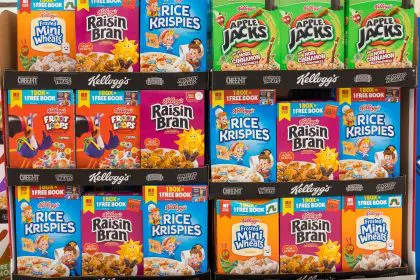Black entrepreneurs in the retail sector are finding innovative ways to navigate market challenges despite economic headwinds and policy shifts affecting diverse businesses. Industry expert Tina Wells offers strategic insights for sustaining growth in an increasingly competitive landscape.
Adapting to shifting supplier diversity standards
Meeting procurement benchmarks
Many corporations maintain supplier diversity programs requiring 51% of procurement spending to flow through businesses owned by underrepresented groups. However, recent data shows companies struggling to reach these targets, creating additional hurdles for Black-owned retail establishments seeking to expand their market presence.
The rollback of certain diversity initiatives in 2023 has prompted many Black entrepreneurs to reshape their approach to corporate partnerships. Business owners are now focusing on demonstrating clear value propositions beyond diversity metrics, emphasizing quality, innovation and operational excellence.
Market resilience through economic volatility
Leveraging agility advantages
Small businesses have a distinct edge in volatile markets because of their ability to adapt swiftly. This agility allows them to make necessary changes in response to market shifts or economic downturns. For example, Wells’ launch of WNDR LN, which gained nationwide distribution through Target, demonstrates how entrepreneurs can turn challenges into opportunities. The quick pivot from one strategy to another showcases the benefits of smaller businesses’ flexibility in difficult times.
The current economic climate, with persistent inflation and budget constraints, is driving Black-owned businesses to build more resilient models. These businesses are adapting by diversifying revenue streams and strengthening cash reserves. This proactive approach helps them better navigate market fluctuations and ensures long-term sustainability.
Mastering retail buyer relationships
Strategic shelf presence Securing and maintaining retail shelf space requires deep understanding of buyer priorities and market performance metrics. Successful Black entrepreneurs are increasingly focusing on data-driven approaches to buyer meetings, analyzing product performance across categories and adapting their offerings to align with consumer demand patterns.
Modern retail success extends beyond initial placement, requiring ongoing relationship management with buyers and careful attention to sales velocity. Business owners who consistently monitor category performance and proactively address inventory challenges are better positioned to maintain their retail presence.
Supply chain optimization strategies
Navigating global trade complexities
The potential for increased tariffs on imported goods, particularly from China, has pushed Black retail entrepreneurs to develop more sophisticated supply chain strategies. Forward-thinking business owners are diversifying their supplier base and building inventory buffers to protect against potential disruptions.
Seasonal production challenges, such as manufacturing slowdowns during Chinese New Year, require careful planning and inventory management. Successful retailers are implementing more robust forecasting methods and maintaining stronger relationships with multiple suppliers to ensure consistent product availability.
Financial innovation and resource utilization
Building sustainable growth models
Black-owned retail businesses are developing innovative approaches to financial management, leveraging available resources while building sustainable growth models. This includes exploring alternative funding sources, optimizing operational costs, and building strategic partnerships within the retail ecosystem.
Successful entrepreneurs are also investing in technology and automation to improve operational efficiency and reduce costs. These investments, while initially challenging for smaller businesses, often prove crucial for long-term sustainability and growth.
The path forward for Black-owned retail businesses requires a combination of strategic foresight, operational excellence, and adaptability. By embracing market challenges as opportunities for innovation and maintaining focus on fundamental business principles, these entrepreneurs are positioning themselves for sustained success in an evolving retail landscape.
Understanding market dynamics, building strong buyer relationships, and maintaining operational flexibility remain crucial elements for success. As the retail sector continues to evolve, Black entrepreneurs who combine these fundamental principles with innovative approaches to modern market challenges are best positioned to thrive.
The current market environment, while challenging, presents opportunities for businesses that can effectively adapt and innovate. Through careful attention to operational excellence, strategic relationship building, and proactive market positioning, Black-owned retail businesses can continue to grow and succeed despite economic headwinds.











